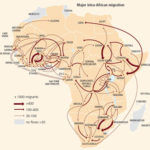MIT ~ History – What Is Urban Upgrading?
No comments yetSince the 1960s, cities in developing countries have faced an unprecedented rate of urbanization and increasing poverty. Uncontrolled proliferation of slums was the result. In general, these unplanned and under served neighborhoods are occupied by squatters without legal recognition or rights. The populations of slums lack the most basic municipal services, such as water supply, sanitation, waste collection or infrastructure, and thus are exposed to disease, crime and natural disasters.
Governments have tried to deal with this problem in different ways. However, their urban policies often failed because of bad governance, corruption, inappropriate regulation, dysfunctional land markets, and, above all, an absence of political will. One response to prevent augmenting urban poverty involved the relocation of residents to resettlement sites that were usually outside of the city. Yet, slums emerged in city centers because these were places where the poor can find work more easily. Consequently, moving the people or replacing their physical facilities did not work well. Governments not only had to spend resources clearing slums and resettling inhabitants, but also later had to finance public transportation to facilitate access to employment in the central city.
Read more: http://web.mit.edu/urbanupgrading/history.html
You May Also Like
Comments
Leave a Reply







